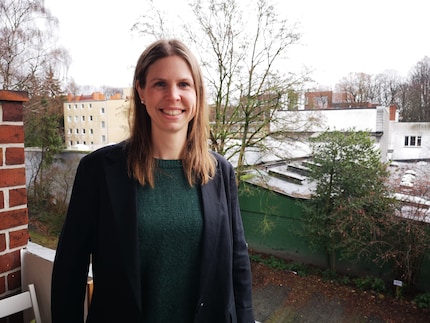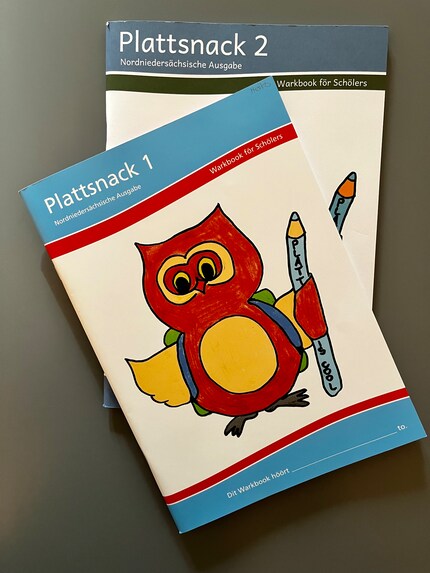
Background information
Meeting up has become so complicated!
by Thomas Meyer

People in Zurich and Hamburg understand each other better than you might think. An expert on (Low) German reveals more in this interview.
When I started my job at Galaxus, I soon realised that journalism was approached differently here. Not only has the company treated its online shop to its very own independent, broad-based, in-house editorial team, but it also celebrates language diversity. When I dial into a video call, I usually throw out a curt «Moin» typical for Hamburg. This is reciprocated by my Swiss colleagues with a «Hoi zäme».
And while I’m still trying to figure out what that might literally mean («hello everyone»? perhaps?), the next question arises in my curious brain: if both these languages are ultimately German, why are they so different? Or are they? And so, I ask somebody who’s bound to know. Nele Ohlsen is a teacher of German and Low German and has been poring over linguistic history books for Galaxus.
You’re also from the Hamburg area. Do you understand Swiss German?
I do. Not every word, but I get the jist of it. And that’s not because I’ve been practising for this interview, but because I know Low German, also known as Plattdeutsch.

Please tell me more!
Swiss German and Plattdeutsch – or «Plattdüütsch» as we say up north – have the same origin. They’re both Germanic languages. So Plattdeutsch is basically the OG German here up north. In the Middle Ages, it was the dominant language for a long time. In the course of the migration of peoples, the language was carried further and further south, where it mixed with various dialects. Swiss German also evolved from it.
How did that happen?
Languages are subject to constant change. This means that medieval German went through several sound shifts on its way to becoming today’s High German. However, some language variants that still exist today didn’t go through these changes. That’s why present-day Low German exists pretty much in its original form alongside High German. Put in simple terms, Swiss German didn’t go through all sound changes either. For example, it left out the so-called diphthongisation of Middle High German monophthongs. As a result, Swiss German has changed less and remained closer to Low German.
Diphtho what?
Diphthong is the linguistic term for umlauts, meaning «eu» «ei», «äu» and «au». In diphthongisation, a simple vowel, called a monophthong, becomes a sequence of two vowels. This means that the umlauts we use in High German today hardly exist in Low German and Swiss German. Instead, a long single vowel is used. And this is where it gets a bit complicated. They tend to be written in doubles to emphasise the length.
Could you give us an example?
The High German word «Haus» has the umlaut «au». However, as there are almost no umlauts in Low German and Swiss German, the word is «Huus» in both languages. It’s the same for the word fire, or «Feuer» in High German. Instead of the diphthong «eu», Swiss German as well as Low German uses «üü». And so, «Feuer» is «Füür» in both languages. Although the pronunciation may be different, the root is the same.
This means I probably understand my colleagues in Switzerland better than I thought. Does Low German also have similarities with other languages?
Yes, with all the North Sea Germanic languages such as Dutch or English. «Katze» is «Katt» in Low German, «kat» in Dutch, and «cat» in English. Swiss German also has similarities with English. The word «gumpe» is very close to «jump». Low German actually served as a bridge language in this case, as it uses the word «jumpen».
Does this mean Low German is helpful if I want to learn another language?
Absolutely. I’m living proof of that. My grandparents almost exclusively spoke Low German with each other. So I’ve been subjected to it since early childhood. Because of this, learning English at school came really easily. Simply because so many words are almost identical. People with a Swiss-German language background might feel the same way.

You work as a primary school teacher in rural Lower Saxony between Hamburg and Bremen. What role does Low German play in the classroom?
At our school, it plays a big one. And I’m glad about that. I’ve been teaching Low German for more than 10 years now, and I can confidently say that all children enjoy it. I teach Low German once a week at my school. Physical education is also in Low German for all classes. I also talk about language with the children. A schoolgirl once asked me if I was from Low Germany. This turned into a child-friendly conversation about the migration of peoples.
Nevertheless, I get the impression that less and less Low German is spoken in the Hamburg region. My colleagues from Zurich, on the other hand, cheerfully chat away among themselves in Swiss German.
That’s because the value of Low German wasn’t recognised for a long time and little was done to preserve the language. Unlike in Switzerland, Low German was gradually pushed out by High German. Low German was considered a peasant language, and so its speakers didn’t pass it down to the next generation. It wasn’t until the 1990s that Germany committed itself to protecting Low German as a cultural asset by signing the European Charter for Regional and Minority Languages.
Maybe you could come back to Galaxus headquarters in Zurich with me and hold a language workshop. You know, international relations and that.
Sure, why not. I’m sure there’d be some interesting discussions. And I bet we’d come across more similarities than differences.
It’s actually a really nice thought. Boss, what do you reckon?
Header image: Pixabay/The GADman
As a child, I was socialised with Mario Kart on SNES before ending up in journalism after graduating from high school. As a team leader at Galaxus, I'm responsible for news. I'm also a trekkie and an engineer.
Interesting facts about products, behind-the-scenes looks at manufacturers and deep-dives on interesting people.
Show all